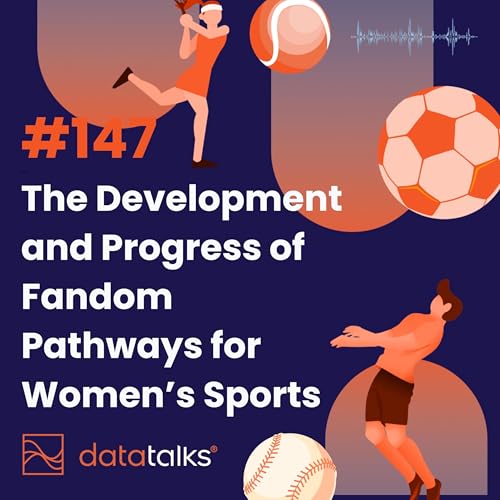Today, we’re talking about something that’s absolutely essential – understanding the emotional connection with fans and how using data in a more personal way can drive not just engagement, but lasting loyalty and growth and how you are going to learn about all of this and more at the Data ‘Talks’ Revenue Conference.
Being in a sold-out sports event is an overwhelming sensory and emotional experience. From the moment you step into the stadium, there’s an electric energy in the air that feels almost tangible. The hum of thousands of conversations, the constant buzz of excitement, and the occasional roar of a chant rising from the crowd wash over you as you find your seat. You can feel the anticipation building, almost like static electricity, as fans from all corners of the stadium unite in their passion for the game.
At times, the crowd falls into a tense silence, but even then, there’s a crackling energy that hovers in the air, as if everyone is holding their breath, waiting for the next moment to explode.
"When dealing with people, remember you are not dealing with creatures of logic, but with creatures of emotion." These are the wise words of Dale Carnegie. This sentiment cuts right to the heart of why personalising your fan engagement strategies is so important. Fans, especially in sports, don’t just make decisions based on logic or pure reasoning. They are driven by emotion – the thrill of victory, the pain of defeat, the pride in their team, the connection with their favourite players. In sports, emotions run deep, and that’s what makes this industry so unique.
Nudge theory, developed by behavioural economist Richard Thaler, tells us that people can be "nudged" into making certain decisions or behaviours through subtle changes in how choices are presented. And it’s not about making people do something; it’s about gently guiding them, often by tapping into their emotional triggers.
Think about it this way: if you want fans to attend more matches, buy more merchandise, or sign up for exclusive memberships, you need to nudge them toward those actions. You do that by making it emotionally compelling and easy for them – not just telling them logically why it’s a good idea. This is where data comes in, and it’s more crucial now than ever.
With the right data – and I mean personal data – you can understand what really motivates your fans. You’re not just treating them as one large group of people who love football or rugby; you’re treating each fan as an individual with unique preferences, passions, and emotional drivers.
This is where sports organisations can truly elevate their strategy. By using a Customer Data Platform (CDP) like Data Talks, clubs can bring together all the fan data in one place. This allows them to not just track who’s attending games or buying merchandise, but also to understand what resonates with individual fans: their favourite players, the games they never miss, or even the emotional moments they care about most.
When you have that data, you can personalise your communications, offers, and experiences. Instead of sending a generic email about the next home game, you send a personalised message to a fan who always attends derby matches, reminding them of how important their support is for that specific game. It’s a subtle nudge, but it works – because you’ve tapped into their emotions.
And why is this even more important in sports than in other industries?
Well, sports fandom is inherently emotional. Unlike other businesses where customers might be more logical in their choices, sports fans are loyal, often for life. They identify with the clubs they support, emotionally investing in every win, every loss, every season. This gives sports organisations a unique advantage – but it also means you need to be more thoughtful about how you engage them. You can’t rely on rational messaging...
 28 分
28 分 2024/10/2953 分
2024/10/2953 分 44 分
44 分 11 分
11 分 56 分
56 分 7 分
7 分 9 分
9 分 6 分
6 分
